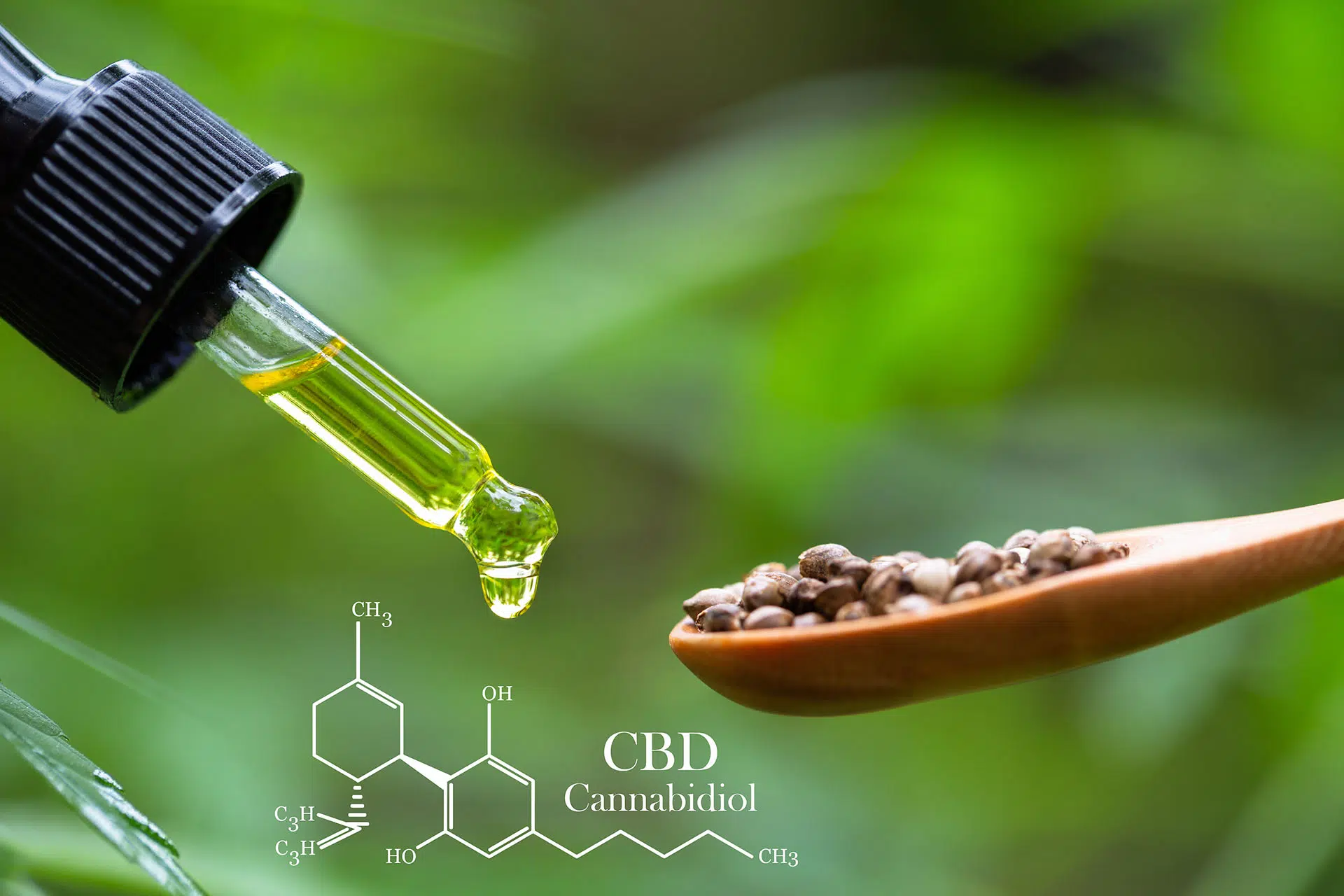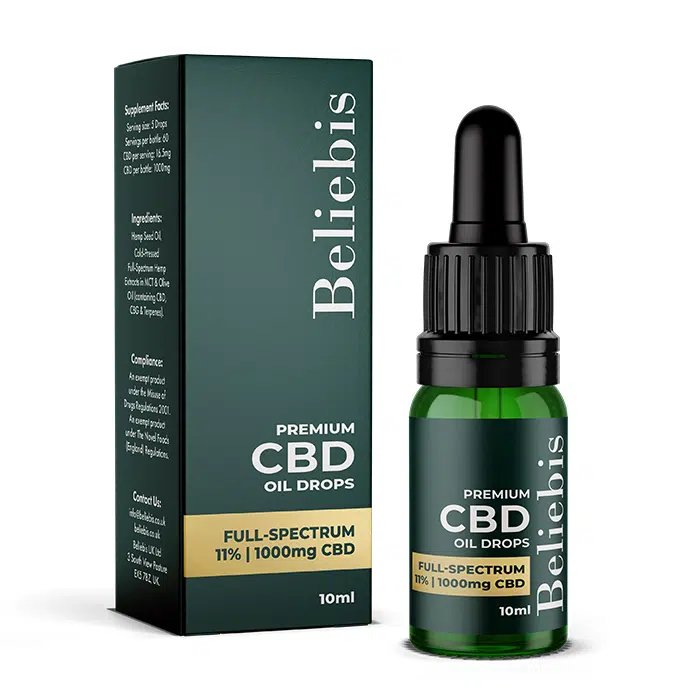Hemp Oil vs CBD Oil: The Key Differences

Contents
Introduction
Firstly, let’s talk about the biggest misconceptions regarding Hemp Oil vs CBD Oil. Most people are under the impression that both of them are the same and just have multiple names.
The key difference is that hemp oil is produced from hemp seeds, whilst CBD oil contains an extract from the leaves and flowers of the cannabis plant. As a result, hemp oil is naturally low in cannabinoids, whereas CBD oil has been produced specifically to contain a high level of cannabinoids, especially cannabidiol (CBD).
Often, “hemp oil” is referred to as CBD oil. However, they are different products. Cannabidiol oil is sourced from stalks, flowers, and leaves of the hemp plant and contains higher concentrations of CBD.
Hemp seed oil, on the other hand, is derived from the seeds of Cannabis sativa plants. Perhaps this is the reason why there’s an ongoing battle about hemp oil vs CBD oil.
Let’s take a proper look at the similarities, differences, and more importantly, the numerous potential health benefits of hemp seed oil and CBD oil.

What Is Hemp Seed Oil?
The Cannabis sativa plant is the main source of hemp seed oil. It is derived from the seeds of the plant, containing fatty acids such as omega-6, omega-3, and gamma-linolenic acid.
Hemp seed oil is high in antioxidants and vitamins B and D. Consumption of hemp seed oil does not get anyone intoxicated as it does not contain any tetrahydrocannabinol (THC).
How Does It Work?
Many people turn to hemp seed oil due to its cardiovascular benefits. Some say that it can help improve your cardiovascular health by balancing cholesterol and triglyceride levels in your body. However, there is no solid evidence that supports these statements.
In the following sections, we will be discussing the uses, benefits, effects, and risk factors of using hemp seed oil.

Uses
Hemp seed oil is used as an alternative to olive oil and can be used in many ways in food. Cannabinoid components are extremely limited in hemp seed oil, which makes the psychoactive effects almost null.
There are great nutritional elements that are naturally high in hemp seed oil, as mentioned above, which makes it a good source of antioxidants, vitamins, and minerals.
Benefits
Let’s look into some of the benefits of hemp oil. Some food manufacturers have developed recipes using hemp seed oil to add nutritional benefits to their products, like energy bars, bread, cookies, and yoghurt.
It is also an excellent source of unsaturated fatty acids, including the essential omega-3 & omega-6, as well as amino acids.
Some of the potential benefits of using hemp seed oil are mentioned below:
- Cardiovascular health
- Aids constipation relief
- Strengthens the immune system
- Improves skin health
- Reduces cholesterol
Side-Effects
Some people have reported very mild side effects including digestive issues, such as diarrhoea when taking larger amounts of oil. Although the same can be said for most cooking oils, however.
Hemp seed oil contains undetectable levels of THC, well below 0.001% - which means that there is no risk whatsoever of getting high when consuming hemp oil.
What Is CBD Oil?
Usually, there are three types of CBD oil available for purchase. They are full-spectrum CBD oil, broad-spectrum CBD oil, and CBD Isolate oil. Let’s look into the varieties of CBD oil.
- Full-spectrum CBD oil contains all the components of the cannabis plant including THC, although in very small, yet legal, amounts
- Broad-spectrum CBD oil - unlike full-spectrum CBD oil, it contains most of the compounds, THC is not one of them as it has been refined to exclude it. Our most popular is this 1000mg CBD Oil UK.
- CBD oil - is made from CBD isolate and only contains CBD
Whichever one you choose, it’s important to take note of the packaging of the actual product. Due to the absenteeism of regulations, many manufacturers tend to use these terms interchangeably.
If you want to be safe, check the Certificate of Analysis (COA) of the CBD products. CBD products should go through a testing process to acquire the certificate, so you can check it before consumption.
If the product you are looking at does not have a COA available to view before purchase treat this as a big red flag!
All Beliebis CBD products are independently tested by a UK ISO accredited laboratory, with their respective Certificate of Analysis available to view before purchase and a copy sent out with every order!
How Does It Work?
Scientists are still discovering the benefits and effects of CBD - based products. However, experts think that CBD works in the following ways:
- Activates serotonin receptors
- Inhibits endocannabinoid reuptake
- Stimulates the transient receptor potential vanilloid 1, which is known to regulate pain, and g-coupled receptor 55
Uses & Potential Benefits
The prime reason for people to opt for CBD oil is its potential health benefits. For example, it is known to treat epilepsy with several clinically proven medications available.
Other potential conditions that CBD may help with are neurodegenerative disorders, anxiety, depression, nausea and severe skin conditions.
More research still needs to be carried out to prove the additional benefits of CBD, however, the potential is extremely promising! Due to recent regulation changes and public opinion shift, the research needed has now become possible.
CBD oil also contains terpenoids and other minor phytocannabinoids but further investigation is yet to confirm the effects it can have on regular users, however, the general consensus is that the inclusion of these additional compounds in broad & full-spectrum CBD products increases their potential effect.

Side-Effects
There was a study where participants consumed 300 - 600 milligrams (mg) per day, there were no side major effects reported, with minor effects being tiredness and some diarrhoea.
Another study showed similar results when participants were asked to consume up to 1500mg of CBD oil daily for up to a month.
Hence, CBD oil is referred to as safe. In fact, the World Health Organization in their 2018 report state CBD is non-toxic and non-addictive with great therapeutic potential!
In recent years, a CBD-based product called Epidiolex is being prescribed by doctors to treat epilepsy. There have been some reports of side effects such as fatigue, loss of appetite, liver malfunction, and diarrhoea - from consuming this CBD drug.
Risk Factors
Science so far suggests that CBD-based products are safe to consume. The side effects are also limited. Having said that, there are still a lot of gaps due to the lack of information on CBD-derived products.
It’s highly suggested when trying CBD-derived products to pay close attention to the label, ingredients list, and source. A great place to start would be our entry-level 500mg CBD oil UK.
Rules and regulations on CBD oil product labelling and packaging are clear in the UK. As CBD is classed as a food supplement in the UK there must be no medical claims whatsoever and the same rules that apply to vitamins, for example, apply to CBD oil products.
We recommend you double-check the following:
- Certification from an independent ISO accredited laboratory
- Check the batch number and COA match
- Strength and content of the cannabinoids clearly labelled
It is necessary for anyone interested in using CBD oils or CBD-derived products to consult with a doctor. One should definitely confirm the dosage amount before consuming it and always start with a low dose and work your way up.
Please note that CBD can sometimes interfere with other medications that you may already be taking.

Know the Difference Between Hemp and CBD Oil
Let’s look at some of the key differences and similarities between hemp seed oil and CBD oil. Many people tend to ask, - Are hemp oil and CBD oil the same? Well, the answer is a straightforward no!
Similarities
Both are excellent health products and have recently been in the spotlight for their potential medical benefits. They have some similarities like belonging to the same family of plants. Both oils are extracted from hemp, which is probably why they’re thought to serve the same purpose.
Differences
There are some significant differences between these two products. The biggest difference is how they are extracted and processed. For example, hemp oil is derived from pressing seeds of the actual hemp plant. CBD oil, on the other hand, is extracted from the flowers, leaves, and stalks of the entire hemp plant.
Hemp seeds contain very high amounts of proteins, omega 3/6, vitamins, and fibre - which is why they are known for their health benefits. Hemp oil retains most of the great nutritional value as they are cold-pressed.
CBD is most commonly extracted made using solvents like butane, ethanol or carbon dioxide. The process produces a highly concentrated extract that contains a significant amount of cannabinoids.
This extract is then refined further to reflect the desired end-product spectrum. In other words, the THC is removed for Broad-spectrum products or CBD is completely isolated leaving a white powder or crystals known as CBD Isolate.
In the last few years, the CBD - market has grown immensely. It is now easily available and accessible in certain health food stores, drug stores, beauty shops, even on the menu of some bars and restaurants.
Conclusion
Hemp oil and CBD oil are not the same. Though they share some common benefits, there are key differences you should know before you buy either.
Hemp seed oil is made from cold-pressing hemp seeds and has a different nutrient profile than CBD oil.
CBD oil is made from extracting CBD from cannabis flowers and contains high levels of cannabinoids like CBD as well as other minor cannabinoids and terpenes.
Both have unique potential benefits, so it’s important to understand the difference before making a purchase. We have covered those in detail above, however, If you still have questions after reading this blog post, be sure to check out our other posts or contact us via our live chat for more information!
